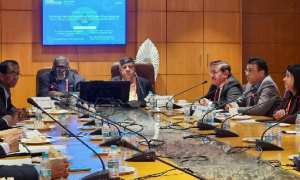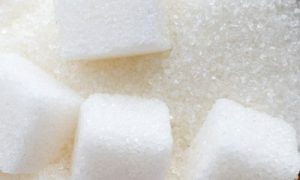Nigeria’s raw sugar import to rise by 12%

Nigeria’s raw sugar imports are projected to rise by 12%, defying self-sufficiency goals. Despite local output gains and rising sugarcane cultivation, import dependency persists due to forex availability, rising consumption, and sectoral bottlenecks. Experts urge structural reforms, security improvements, and private investment. A $1 billion MoU with SINOMACH signals progress in Nigeria’s sugar self-sufficiency and rural development efforts.
The Foreign Agricultural Service (FAS)-Lagos has projected a considerable 12 per cent jump in raw sugar imports for this year and next year.
This is in spite of the country’s aspiration to become self-sufficient in sugar production which is now facing a significant setback. Several initiatives and substantial investments have gone into boosting local output.
The FAS projection stands in stark contrast to the nation’s dream of self-sufficiency and is primarily driven by an anticipated improvement in the availability of foreign exchange, the strengthening of the naira, and a predicted rise in domestic sugar consumption.
Recent data on March 2025 shipping imports highlighted approximately 98,000 metric tons of raw sugar flowing into the country, starkly illustrating the persistent gap between what Nigeria produces and what it consumes.
Despite the gloomy import forecast, there is a projected increase in local sugarcane cultivation. FAS-Lagos forecast a five percent increase in sugarcane area harvested in MY 2025/26, reaching 100,000 hectares, up from the prior year’s estimated 95,000 hectares.
The expansion is a direct result of continued investments in sugarcane cultivation. It also projected a significant 100 per cent increase in sugarcane production in MY 2025/26 to 3.5 million metric tons (MMT). However, the dramatic rise is primarily due to an adjustment in yield estimates to a more realistic 35 MT/ha, up from the previously underestimated 18 MT/ha, rather than a massive year-on-year increase in actual output.
Industry data suggests that yields typically range from 30 MT/ha for smallholder farmers to 40 MT/ha for irrigated plantations. Despite the focus on boosting local production, Nigeria’s refined sugar exports to West Africa and other African countries are expected to remain steady at 375,000 MT in MY 2025/26. The stability is attributed to the anticipated increase in domestic consumption, which will likely absorb any marginal increases in local refining capacity.
The Nigerian Sugar Master Plan (NSMP), now extended to 2033, remains a key policy driving investments in the sector. The NSMP II aims to achieve an annual refined sugar production of 1.7 to 1.8 million metric tons and develop 300,000 hectares of irrigated land for sugarcane cultivation across nine states. Major players such as Dangote Sugar, BUA Foods, and Golden Sugar have made substantial investments in line with the NSMP’s objectives. However, stakeholders caution that an increase in harvested area alone may not be sufficient to significantly reduce import dependence without addressing critical bottlenecks in the value chain. These include the persistent issues of inadequate infrastructure, limited access to quality inputs, suboptimal farming practices, and insecurity in key sugarcane-producing states.
The President, Association of Small Business Owners of Nigeria (ASBON), Dr. Femi Egbesola, noted this in his assessment: “Production of sugar in Nigeria is yet to meet domestic demand, thereby creating a huge supply gap that is met through import. For self-sufficiency in sugar production, the government must put up a new Sugar Master Plan that must address and resolve the challenges militating against its growth.”
Egbesola identified critical challenges plaguing the sector, including a lack of adequate local raw materials, environmental constraints, the unavailability of quality seed cane and suitable varieties, poor irrigation infrastructure, limited farm mechanization, insecurity in production areas, and insufficient capital
He proposed a comprehensive restructuring of the cane industry to enhance efficiency and yields. His recommendations include measures to promote the establishment of cane mills near sugar estates and across sugarcane-producing regions. Furthermore, he stressed the need for capacity building and intervention programs targeting processors and other actors within the sugar production value chain.
Echoing these concerns, the Provost, College of Agricultural Sciences and Renewable Natural Resources at Ladoke Akintola University Ogbomoso, Iseyin Campus, Prof Abel Ogunwale, emphasised the urgent need to increase cultivation as the NSMP concludes. He highlighted the dual threats of insecurity in farmlands and the increasing use of sugarcane for ethanol production.
To counter these challenges, Ogunwale advocated for robust government support for sugarcane breeding research at institutions such as the National Cereal Research Institute (NCRI) in Bida and the University of Ilorin Sugar Research Institute.
He urged these institutions to focus on developing early-maturing varieties suitable for different ecological zones and releasing new sugarcane varieties for commercial cultivation.
He also called on the government to actively encourage the organized private sector to intensify sugarcane cultivation and its utilization for ethanol production.
Addressing the critical issue of insecurity, Ogunwale stressed the need to improve the security architecture in major sugarcane-producing areas in the North-west, North-east, and North-central regions, where banditry and insurgency have displaced farmers.
Additionally, he underscored the importance of intensifying training programmes for both sugarcane farmers and researchers to bridge the knowledge gap hindering the sector’s development.
Despite the challenges, there are glimmers of hope with ongoing investment initiatives. The Executive Secretary, National Sugar Development Council (NSDC), Mr. Kamar Bakrin, recently stated that Nigeria requires a significant $5 billion investment in the sugar sector to achieve self-sufficiency.
He noted that the local sugar market, currently valued at $2 billion, presents a substantial growth opportunity that necessitates this level of capital injection.
In a significant move towards attracting investment, the NSDC recently signed a Memorandum of Understanding (MoU) with Chinese conglomerate SINOMACH for a large-scale sugarcane cultivation and processing project in Nigeria. The Agreement is expected to attract investments worth up to $1 billion.
According to Bakrin, the partnership is a direct outcome of the Nigeria-China Strategic Partnership championed by President Bola Tinubu. The MoU outlined SINOMACH’s commitment to constructing a sugar processing plant and developing a sugarcane plantation with an initial annual processing capacity of 100,000 metric tonnes, with a long-term goal of reaching one million metric tonnes.
Bakrin hailed the agreement as a “strategic milestone” in Nigeria’s pursuit of sugar self-sufficiency, projecting that the project will generate thousands of jobs, stimulate rural infrastructure development, conserve valuable foreign exchange, and serve as a model for broader industrialisation efforts.
He emphasised the unique nature of the partnership, combining engineering, procurement, and construction (EPC) with development financing.
The NSDC has pledged its full support to ensure the project’s smooth takeoff, including facilitating necessary approvals and land acquisition. Vice President, SINOMACH, Mr. Li Yu, lauded Nigeria’s implementation of NSMP as a “sweet revolution” aligned with food sovereignty and economic dignity.
He expressed confidence that the partnership would not only significantly boost Nigeria’s sugar self-sufficiency but also promote rural development, create employment opportunities, and enhance agricultural modernisation. SINOMACH is also exploring RMB-based financing models to potentially lower financing costs and expedite approvals in China.
To Read more about Sugar Industry continue reading Agriinsite.com
Source : The Nation Onlineng















